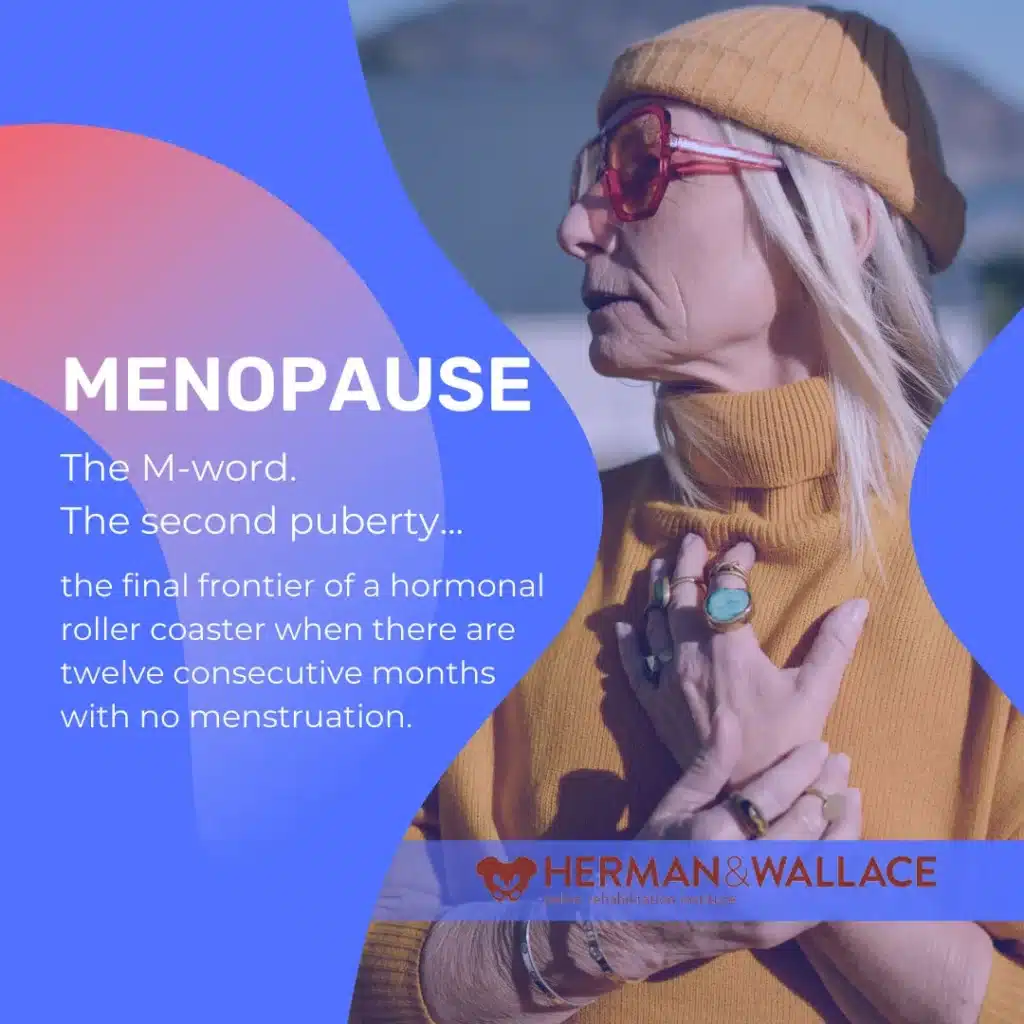Menopause is a natural biological process that marks the end of a woman’s reproductive years. It typically occurs in women between the ages of 45 and 55, although it can happen earlier or later for some women. Menopause is characterized by a decrease in the production of hormones such as estrogen and progesterone, which can lead to a variety of physical and emotional symptoms. These hormonal changes can create a rollercoaster effect on a woman’s body, leading to a range of symptoms that can be challenging to navigate.
Understanding the hormonal rollercoaster of menopause is important for women going through this transition, as it can help them better manage their symptoms and improve their overall quality of life. In this article, we will explore the hormonal changes that occur during menopause, the symptoms that can result from these changes, and strategies for coping with the hormonal rollercoaster of menopause.
Hormonal Changes During Menopause
Menopause is a gradual process that begins with perimenopause, the period leading up to menopause. During perimenopause, the ovaries start to produce less estrogen and progesterone, leading to irregular menstrual cycles and other symptoms such as hot flashes, night sweats, and mood swings. As women enter menopause, their estrogen levels continue to decline, eventually leading to the end of menstruation.
The decrease in estrogen levels during menopause can have a significant impact on a woman’s body. Estrogen plays a key role in regulating the menstrual cycle, maintaining bone density, and supporting the health of the reproductive organs. When estrogen levels drop, women may experience a variety of symptoms, ranging from physical to emotional.
Symptoms of the Hormonal Rollercoaster of Menopause
The hormonal changes that occur during menopause can lead to a wide range of symptoms, which can vary in severity from woman to woman. Some of the most common symptoms of the hormonal rollercoaster of menopause include:
Hot flashes: Hot flashes are sudden, intense feelings of warmth that can cause sweating and flushing of the skin. They are one of the most common symptoms of menopause and can be triggered by a variety of factors, such as stress, caffeine, or alcohol.
Night sweats: Night sweats are similar to hot flashes but occur during the night, leading to disrupted sleep and fatigue.
Mood swings: Hormonal fluctuations during menopause can lead to mood swings, irritability, and feelings of sadness or anxiety.
Weight gain: Changes in hormone levels can affect metabolism and lead to weight gain, especially around the abdomen.
Sleep disturbances: Hormonal changes can disrupt the sleep cycle, leading to difficulty falling asleep or staying asleep.
Vaginal dryness: Decreased estrogen levels can result in vaginal dryness, leading to discomfort during intercourse.
Memory problems: Some women may experience memory problems or difficulty concentrating during menopause, which is often referred to as “brain fog.”
Bone loss: Estrogen plays a key role in maintaining bone density, so the decrease in estrogen levels during menopause can increase the risk of osteoporosis and fractures.
Strategies for Coping with the Hormonal Rollercoaster of Menopause
Coping with the hormonal rollercoaster of menopause can be challenging, but there are several strategies that can help women manage their symptoms and improve their quality of life during this transition. Some strategies for coping with the hormonal rollercoaster of menopause include:
Healthy diet: Eating a balanced diet rich in fruits, vegetables, whole grains, and lean proteins can help support overall health and manage symptoms of menopause. Avoiding caffeine, alcohol, and spicy foods can also help reduce the frequency and severity of hot flashes.
Regular exercise: Regular physical activity can help improve mood, reduce stress, and maintain bone density during menopause. Aim for at least 30 minutes of moderate-intensity exercise most days of the week.
Stress management: Stress can exacerbate symptoms of menopause, so finding ways to manage stress is important. Techniques such as deep breathing, meditation, yoga, and mindfulness can help reduce stress and improve overall well-being.
Hormone replacement therapy (HRT): For some women, hormone replacement therapy may be recommended to help alleviate symptoms of menopause. HRT can help replace the hormones that are declining during menopause, such as estrogen and progesterone.
Alternative therapies: Some women find relief from menopausal symptoms through alternative therapies such as acupuncture, herbal supplements, or bio-identical hormones. It is important to consult with a healthcare provider before trying alternative therapies to ensure they are safe and effective.
FAQs about the Hormonal Rollercoaster of Menopause
Q: How long does the hormonal rollercoaster of menopause last?
A: The hormonal rollercoaster of menopause can last for several years, with symptoms typically starting in perimenopause and continuing into menopause. The duration of symptoms can vary from woman to woman, with some women experiencing symptoms for a few years and others experiencing them for longer.
Q: Are there any natural remedies for managing symptoms of menopause?
A: There are several natural remedies that can help manage symptoms of menopause, such as eating a healthy diet, exercising regularly, practicing stress management techniques, and using herbal supplements. It is important to talk to a healthcare provider before trying any natural remedies to ensure they are safe and effective.
Q: Can menopause affect a woman’s sex drive?
A: Yes, menopause can affect a woman’s sex drive due to hormonal changes that can lead to vaginal dryness, decreased libido, and discomfort during intercourse. It is important to talk to a healthcare provider if you are experiencing changes in your sex drive during menopause.
Q: Can menopause cause depression?
A: Hormonal fluctuations during menopause can contribute to mood swings, irritability, and feelings of sadness or anxiety, which can sometimes lead to depression. It is important to seek help from a healthcare provider if you are experiencing symptoms of depression during menopause.
Q: Is it normal to experience memory problems during menopause?
A: Some women may experience memory problems or difficulty concentrating during menopause, often referred to as “brain fog.” These symptoms are typically temporary and can be managed through stress management techniques, regular exercise, and a healthy diet.
In conclusion, the hormonal rollercoaster of menopause is a natural part of the aging process for women, characterized by a decrease in estrogen and progesterone levels that can lead to a variety of physical and emotional symptoms. By understanding the hormonal changes that occur during menopause and implementing strategies for coping with these changes, women can better manage their symptoms and improve their overall quality of life during this transition. If you are experiencing symptoms of menopause, it is important to talk to a healthcare provider for personalized guidance and support.


